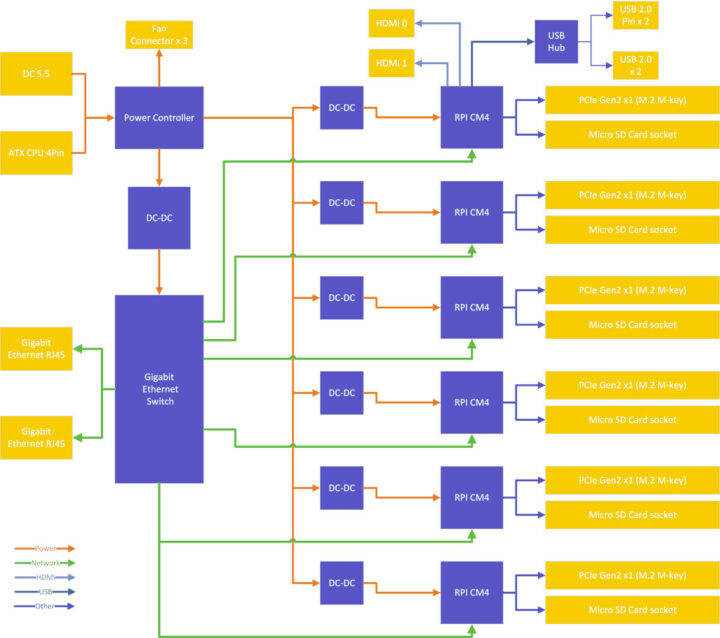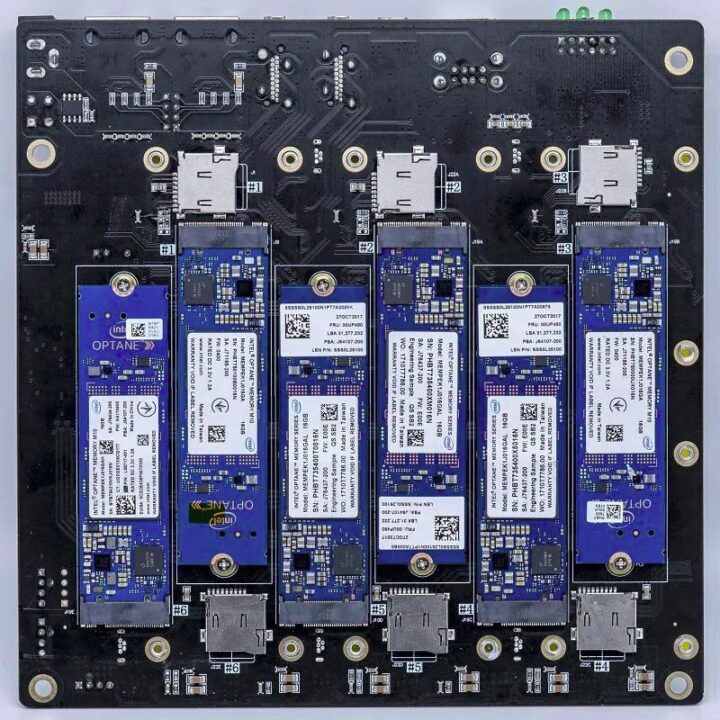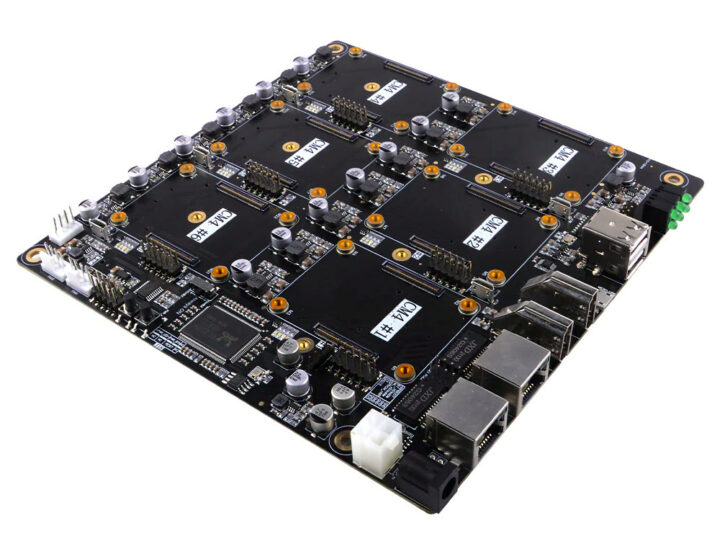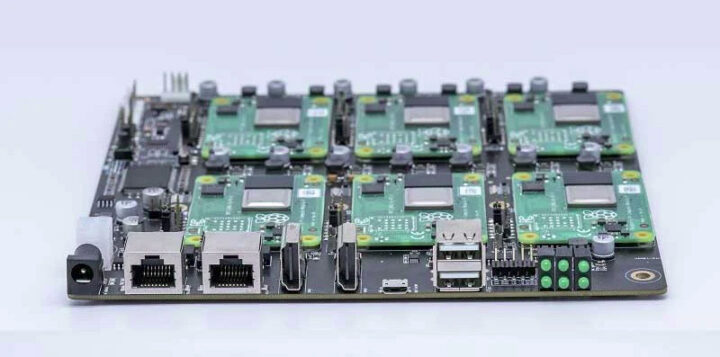You may remember the Turing Pi 2 mini-ITX cluster board that supports up to four Raspberry Pi CM4 modules. It now has some competition with the DeskPi Super6C board, still based on the mini-ITX form factor, and taking up to six Raspberry Pi CM4 modules.
The Super6C offers a much slimmer design since the modules are inserted horizontally instead of vertically, plus each module comes with its own M.2 NVMe SSD socket besides a microSD card slot. The board also features two Gigabit Ethernet ports and two HDMI outputs, as well as four USB 2.0 ports.
DeskPi Super6C specifications:
- SoM – 6x sockets for up Raspberry Pi Compute Module 4
- Storage
- 6x M.2 PCIe Gen2 x1 2280 sockets, one per CM4 module
- 6x MicroSD card slots, one per CM4 module
- Video Output – 1x HDMI 2.0 output, 1x HDMI 1.4a output, both attached to the first Raspberry Pi CM4 module
- Networking
- 2x Gigabit Ethernet RJ45 ports
- Gigabit Ethernet switch to interconnect all 6x system-on-modules
- USB
- 6x micro USB ports, one per CM4 module to flash the OS to the eMMC flash (except for Raspberry Pi CM4 Lite modules)
- 2x USB 2.0 Type-A ports, 2x USB 2.0 interfaces via header, all attached to the first CM4 module
- Misc
- Onboard ON/OFF and Reset button
- PC Case front panel header
- 3x 12V fan headers
- 6x 5V fan header, one per CM6 module
- Some LEDs
- Power Supply – 19V to 24V DC via a power barrel jack or 12V via a 4-pin ATX connector
- Dimensions – 170 x 170 x 21 mm (Mini-ITX form factor)

The DeskPi Super6C ships with a 100W power supply, but you’ll need to source your own Raspberry Pi CM4 module. Good luck with that! The OS is bootable from either the eMMC, SD Card, or the network. There are some more hardware details and instructions to use Ansible open-source software platform for remote configuring and managing computers on Github.
The list of potential applications seems to be copied from the Turing Pi website and includes setting up a home server (homelab), hosting cloud apps, learning about Kubernetes, Docker Swarm, Serverless, Microservices, setting up a Cloud-native apps testing environment, learning concepts of distributed Machine Learning apps, prototyping applications, studying parallel and distributed computing concepts, as well as hosting K8S, K3S, Minecraft, Plex, Owncloud, Nextcloud, Seafile, Minio, Tensorflow, etc…

52Pi sells the DeskPi Super6C on their own website for $199.99 plus shipping, but you’ll also find it on Amazon for $249.99.

Jean-Luc started CNX Software in 2010 as a part-time endeavor, before quitting his job as a software engineering manager, and starting to write daily news, and reviews full time later in 2011.
Support CNX Software! Donate via cryptocurrencies, become a Patron on Patreon, or purchase goods on Amazon or Aliexpress






